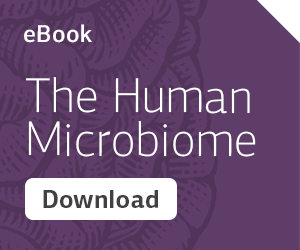Why the Human Microbiome is Important

The human microbiome is important because it’s relevant for nearly every aspect of health and plays a fundamental role in the function of multiple body systems. The microbiota that live in your gut are responsible for affecting either positive or negative change that ultimately determines how healthily or unhealthily your daily functions are performing.
The gut microbiota perform functions such as making vitamins, providing fuel for gut cells, antimicrobial activity, increasing the availability of unique plant nutrients, promoting healthy inflammatory response , and controlling genetic activity in the gastrointestinal (GI) tract. This includes genes involved in:
- Immunity
- Nutrient absorption
- Energy metabolism
- Intestinal barrier function
Effects on Microbial Diversity in the Human Microbiome
A healthy diverse microbial balance is important to help protect the GI tract from “bad” gut microbes, such as bacteria and fungi. Such effects include competing for nutrients and blocking new “bad” gut microbes from “setting up camp” within the gut.
“Good” gut microbiota break down fibers from the diet through fermentation, with the end product being short-chain fatty acids (SCFAs). Research shows that SCFAs increase the acidity of the GI tract, making it a less attractive habitat for microbes that are sensitive to low pH (higher acidity), such as Enterobacteriaceae and Clostridia. SFCAs like butyrate are also beneficial for:
- Providing fuel for gut cells
- Promoting the integrity of the gut barrier
- Supporting immune function
- Enhancing electrolyte and water absorption
On the other hand, reduced levels of butyrate may lead to a healthy inflammatory response, mucosal atrophy, and cell death.[1]
Increasing Phytochemical Bioavailability in the Human Microbiome
Phytochemicals are unique nutrients found in plants known to elicit positive health effects in the body. The human microbiome creates a positive environment for transforming phytochemicals, like polyphenols, into a form that’s more bioavailable.[2] Most dietary polyphenols are not absorbed before reaching the large intestine, where gut microbiota of the human microbiome metabolize them. This process increases polyphenol bioavailability, thus increasing the body’s ability to benefit from their positive influence. These metabolites then “return the favor” and support the human microbiome by promoting “good” bacteria and discouraging “bad” bacteria within the large and small intestines.
The Human Microbiome & Health and Wellness Challenges
The resolution phase of the inflammatory process is a foundational part of the immune response, and a healthy inflammatory response is characterized by a timely initiation and resolution. In an ideal response situation, inflammation begins and ends when it needs to. But, when the resolution phase of the inflammatory process is not resolved in a timely manner, this normal inflammatory response may do more harm than good. Changes in the human microbiome, like reduced microbial diversity, may contribute to a long-term inflammatory response without a timely resolution phase.[3]
Insulin Sensitivity & Glucose Metabolism
Certain negative changes in the microbial composition are associated with negative heart health outcomes.[4] Altered gut microbiota may contribute to increased body weight, reduced insulin sensitivity, and impaired glucose metabolism4 via pathways such as those associated with calorie utilization and gene expression associated with pancreatic activity.[5] Many normal activities performed by a healthy microbiome are advantageous for cardiometabolic health, including:
- Fermentation of dietary fiber
- Nutrient extraction
- Vitamin synthesis
- Discouraging “bad” microbes in the gut
- Immune support
A variety of lifestyle factors like nutrition, physical activity, and environmental exposure can influence the composition of the human microbiome. Read more in our recent post, “What a Healthy Gut Microbiome Looks Like & Why You Need One.”
What Impacts the Human Microbiome?
Positive impacts on the human microbiome come from vaginal births and breastfeeding as well as including fiber[6], phytochemicals[7] from plants, and fermented foods in your diet. For example, a 2019 study found that breastfeeding was one of several early life factors that positively influenced gut microbial structure and function in healthy, early school-age children. Many newer infant formulas are adding Human Milk Oligosaccharides and other non-digestible compounds aiming to mimic the many benefits of breastfeeding. Early data from adding HMOs is promising, although more studies are needed to confirm this having the longstanding microbiome benefits.[8]
Negative impacts on the human microbiome come from high fat diets, high sugar diets,[9] and the overuse or misuse of antibiotics and other pharmaceuticals, such as proton pump inhibitors (PPIs). Antibiotics may harm gut microbiota populations[10] as “good” bacteria become collateral damage of the course of treatment.
The human microbiome is an important part of whole body health through its impact on every other body system. The role of gut microbiota in antimicrobial activity, phytochemical bioavailability, vitamin synthesis, heart mechanisms, and supporting the resolution phase of the inflammatory process are just a few of the important ways in which the microbiome exerts its influence. Support your gut microbiome with a balanced diet, pharmaceutical use only as needed, supplementation with prebiotics and probiotics when needed, and other healthy lifestyle choices.
[1] Yap, Y.A. & Mariño, E. (2018). An Insight Into the Intestinal Web of Mucosal Immunity, Microbiota, and Diet in Inflammation. Frontiers in immunology, 9, 2617. doi:10.3389/fimmu.2018.02617
[2] Ozdal, T., Sela, D. A., Xiao, J., Boyacioglu, D., Chen, F., & Capanoglu, E. (2016). The Reciprocal Interactions between Polyphenols and Gut Microbiota and Effects on Bioaccessibility. Nutrients, 8(2), 78. https://doi.org/10.3390/nu8020078
[3] Ferreira, C. M., Vieira, A. T., Vinolo, M. A., Oliveira, F. A., Curi, R., & Martins, F. (2014). The central role of the gut microbiota in chronic inflammatory diseases. Journal of immunology research, 2014, 689492. https://doi.org/10.1155/2014/689492
[4] Hansen, T. H., Gøbel, R. J., Hansen, T., & Pedersen, O. (2015). The gut microbiome in cardio-metabolic health. Genome medicine, 7(1), 33. https://doi.org/10.1186/s13073-015-0157-z
[5] Hansen TH, Gøbel RJ, Hansen T, Pedersen O. The gut microbiome in cardio-metabolic health. Genome Med. 2015;7(1):33. Published 2015 Mar 31. doi:10.1186/s13073-015-0157-z
[6] Hills, R. D., Jr, Pontefract, B. A., Mishcon, H. R., Black, C. A., Sutton, S. C., & Theberge, C. R. (2019). Gut Microbiome: Profound Implications for Diet and Disease. Nutrients, 11(7), 1613. https://doi.org/10.3390/nu11071613
[7] Roopchand, D. E., Carmody, R. N., Kuhn, P., Moskal, K., Rojas-Silva, P., Turnbaugh, P. J., & Raskin, I. (2015). Dietary Polyphenols Promote Growth of the Gut Bacterium Akkermansia muciniphila and Attenuate High-Fat Diet-Induced Metabolic Syndrome. Diabetes, 64(8), 2847–2858. https://doi.org/10.2337/db14-1916
[8] Zhong, H., Penders, J., Shi, Z., Ren, H., Cai, K., Fang, C., Ding, Q., Thijs, C., Blaak, E. E., Stehouwer, C., Xu, X., Yang, H., Wang, J., Wang, J., Jonkers, D., Masclee, A., Brix, S., Li, J., Arts, I., & Kristiansen, K. (2019). Impact of early events and lifestyle on the gut microbiota and metabolic phenotypes in young school-age children. Microbiome, 7(1), 2. https://doi.org/10.1186/s40168-018-0608-z
[9] Sugary t(h)reats: our gut microbiome and diet. (2019). EClinicalMedicine, 6, 1–2. https://doi.org/10.1016/j.eclinm.2019.01.006
[10] Blaser M. J. (2016). Antibiotic use and its consequences for the normal microbiome. Science (New York, N.Y.), 352(6285), 544–545. https://doi.org/10.1126/science.aad9358

About the Author
Sara LeBrun-Blashka, MS is the director of education at Standard Process. Sara is a nutritionist with Master’s in Nutrition Education at American University and a bachelor of science in dietetics and food science. Sara has strong industry experience working for multiple nutrition organizations over the last 20 years. Sara has also provided medical and nutrition marketing consulting services and medical food development to a wide range of health focus corporations. She has also provided radio interviews on multiple health programs and writes nutritional articles. Sara is a member of the Academy of Nutrition & Dietetics and American Society of Parenteral and Enteral Nutrition. She keeps busy with her family, dog, exercising and traveling. Sara has a passion for community-supported agriculture (CSA) and is active on multiple charitable boards.
More Posts by Sara Le Brun-Blashka, MS
